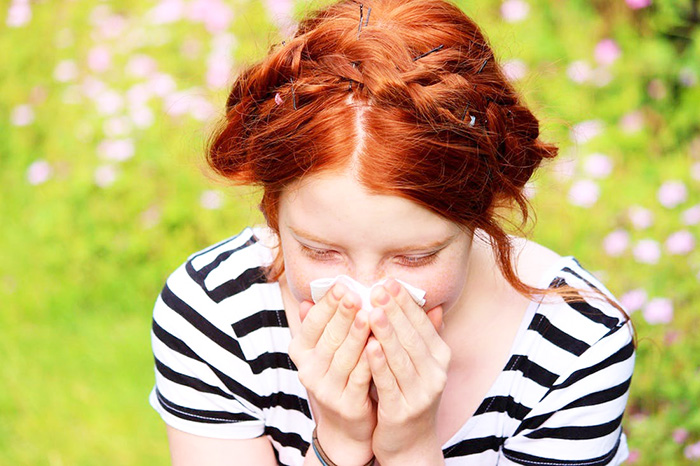What’s so funny about hay fever is it’s not brought about by contact with hay and the person who has it does not have any fever. It is a type of allergy that some people or doctors also refer to at times as allergic rhinitis. It may seem like it is the same thing as the common cold but it isn’t because it is due to an allergen and not a virus which is the culprit behind a bout of cold.
Keep on reading if you like to know more about hay fever. After checking out this article, kindly repost it so that your family and friends may also get to know some of the most important matters about it.
Cause
Simply put, hay fever happens when you come into contact with an allergen. Different people with hay fever have different allergens. Some may be allergic to pollen while others may be allergic to pet dander.
An allergic reaction happens when the immune system senses the presence of an allergen and springs into action in order to defend the body from it although an allergen is not really something that can put the person’s life in danger. When the immune system is trying to deal with an allergen, it causes certain chemicals to be released and these chemicals are the ones responsible for the signs and symptoms of hay fever.
Signs and Symptoms
Just like what’s mentioned earlier, someone who is suffering from hay fever may appear like he or she has the common cold. It’s for the fact that hay fever and a cold have so many similar signs and symptoms. However, a person with hay fever does not have fever because there is no ongoing infection, just an allergic reaction.
Despite of it being merely an allergic reaction, most of the signs and symptoms of hay fever can keep a person from having a normal life. Some of them include:
Runny or stuffy nose
Sneezing
Watery eyes
Scratchy throat
Itching
As you can see, based on the signs and symptoms mentioned above having hay fever is just like having a bout of a cold. By the way, it’s not unlikely for someone who has hay fever to also have headaches, fatigue, sweats and facial pain. Someone who has asthma may experience more breathlessness and wheezing when he or she has hay fever.
Treatment
Unfortunately, there is no treatment available for hay fever. The only way to keep it from striking is by steering clear of allergens, which can be extremely challenging to do as some months of the year have lots of certain types of allergens.
The good news is the signs and symptoms of hay fever can be controlled with the help of various OTC medications. Some of them are:
Antihistamines
Commonly sold as tablets, they are very good at dealing with runny nose, sneezing and itching. However, they are not good for zapping nasal congestion. Some people with hay fever stay away from antihistamines as they tend to cause drowsiness.
Eye drops
Those who experience watery eyes while having hay fever may administer eye drops that are able to control wateriness and itchiness, too.
Corticosteroids
Basically, these medications help control inflammation. Some of them are sprayed in the nose to help reduce the signs and symptoms. Others come in tablet form. Unfortunately, orally taken corticosteroids are not suited for long-term use as they are known to cause health risks such as muscle weakness, cataracts and osteoporosis.
Aside from the ones mentioned above, there’s also what’s known as immunotherapy. It’s all about gradually making the immune system react to allergens. It is usually administered in the form of sublingual drops and allergy shots.








